Brandon Stanton's Blog, page 40
January 28, 2021
(4/11) “I felt cursed. Why hadn’t I been born a boy? I had all...

(4/11) “I felt cursed. Why hadn’t I been born a boy? I had all these ideas, and all these dreams, but nobody would ever recognize them. I spent the next few weeks laying on the sofa, thinking about my life. And eventually I got so depressed that I think it scared my father. One morning he poked his head into my room, and said: ‘I have a meeting in Lahore. If you can be ready in five minutes, I will take you with me.’ My mother came along for the ride. But nobody spoke very much. And when we arrived in the city, they dropped me off at a cheap female hostel. It was the only place I could afford to stay. There were no windows. My mattress was on the floor. And I was sharing a room with three other girls, but none of this bothered me. Because I finally had my freedom. Waqas and I began working on our company right away. We named it ‘Social Media Art,’ and our plan was to help companies establish a presence on social media. But this was less than ten years after 9/11. There were still many sanctions on the economy. And Facebook was banned in Pakistan, so it wasn’t easy to find clients. We used KFC as our office because it was the only place with free WiFi. We were sharing a single laptop. All day long we’d email companies, asking for a meeting. At the time we were surviving off $100 a month that I earned from my tutoring gig. It was a very difficult life. Nobody wanted to hire us, and it seemed like we had no path. But at the end of each day we would watch YouTube videos from American entrepreneurs. And we’d read articles in the Harvard Business Review, about people who went from zero to millions. We kept reminding each other: ‘Everyone starts this way. It takes years to be successful.’ But it could be difficult to maintain that confidence. My parents were giving me no emotional support. Sometimes I’d get so lonely that I would call back home, and they’d ask me: ‘Why are you doing this to us? You need to quit these random things.’ When I hung up the phone, Waqas would sometimes see me crying. He’d come over and hold me. ‘Don’t worry,’ he’d say. ‘Everyone starts this way. We are going to make it. We will find a way to be successful, and everyone will understand.’”
(3/11) “After high school I enrolled at a local boy’s college. I...

(3/11) “After high school I enrolled at a local boy’s college. I was one of fifteen girls at the entire school. And even though my grades were nothing special, I was very involved in student organizations. During my freshman year we had a giant flood in Pakistan, and many of us were searching for ways to help. My idea was to produce a play. We would stage the performance at a local theater, and all proceeds would go to victims of the flood. I organized everything myself: I wrote the script, I found the actors, I scheduled rehearsals at our home. It was the most powerful that I’d ever felt. And everything was coming together. But a few weeks into our rehearsals, the neighbors began to notice strange boys coming and going from our home. One morning my father called me into the living room. ‘The neighbors are gossiping,’ he said. ‘You are embarrassing our family.’ Then he made me promise that I would cancel the play. Every day he would ask me, and every day I would lie to him. We held our rehearsals in secret. We kept selling tickets. And on the day of the performance, there were 1500 people in the audience. The play was about a girl who’d lost everything in the flood. There were some songs, and some comedy, and a little drama when the government refused to help. Everything went perfectly. And when the final curtain came down, there was a big speech about how Sidra had organized the whole thing. The entire audience stood up and clapped. From backstage I could see my father’s friends, even the ones who had told on me. And there was Waqas, sitting in the front row, clapping harder than anyone. He came backstage and told me all about his life in Lahore. He said that he’d discovered something called ‘the internet,’ and he was planning to start a business. Then he asked if I would join him in Lahore and become his business partner. He told me: ‘With someone like you on the team, people will take us seriously.’ It finally felt as though my talents were being recognized, and the next day I asked for my parent’s permission. But they refused. ‘It’s time to stop this foolishness,’ my mother said. Then she gave me an ultimatum: ‘Either become a teacher, or get married.”
(2/11) “Suddenly the science and literature books disappeared...
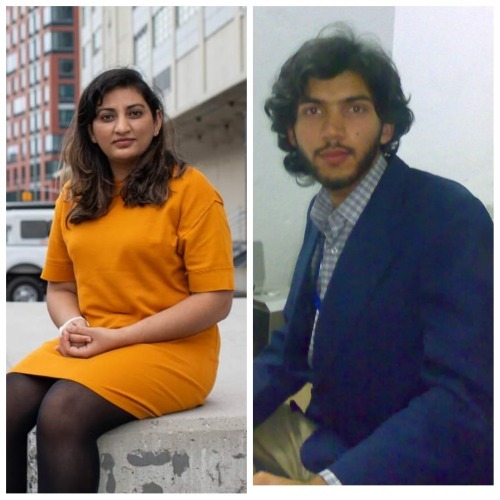
(2/11) “Suddenly the science and literature books disappeared from our home. They were replaced by Islamic books, all of which were written by men. The rules were tightened. Our dress code became very strict. And if I ever tried to question these things, I could be hit in front of my younger siblings. More and more matchmakers began coming to our home, and the pressure to marry became relentless. I tried my best to focus on my studies. My aunt was working as a private tutor, and she would sometimes help me prepare for exams, so most afternoons I would escape to her house. It was there that I first met Waqas. He was one of my aunt’s students. He had a patchy beard, and an untucked shirt, and a shy demeanor. He seemed serious about his studies, but there was a mischievous smile. One afternoon I noticed that he had given my aunt a book. It was a very bad book, some cheap teenage romance. So when he returned for his next session, I offered him something more refined. My choice was a famous novel called Raja Gihd, and I suggested that we read it together. The book was about a girl who falls in love with her teacher. We agreed to read ten pages at a time, and afterward we would meet to discuss. During these meetings we would talk about much more than the story. We’d discuss life, and society, and human emotions. It became the only chance I had to exchange my ideas with anyone. And Waqas took my opinions seriously. Sometimes he’d bring his diary with him, where he’d copied a lot of poems from different poets. Occasionally he’d read them out loud to me. Many were philosophical. And some were romantic, but I never felt like I was being courted. Perhaps because he was a year younger than me. Or maybe because he was from a different caste. But it never seemed possible for the two of us to ever be more than friends. After several months of meeting together, Waqas had to leave for college in Lahore. At the end of our final discussion, he asked me to write a poem in his diary. It was the first poem I’d ever written. And it was a poem of departure. I wouldn’t see Waqas again for 1.5 years.”
(1/11) “There is a moment I’ll never forget. My mother was...
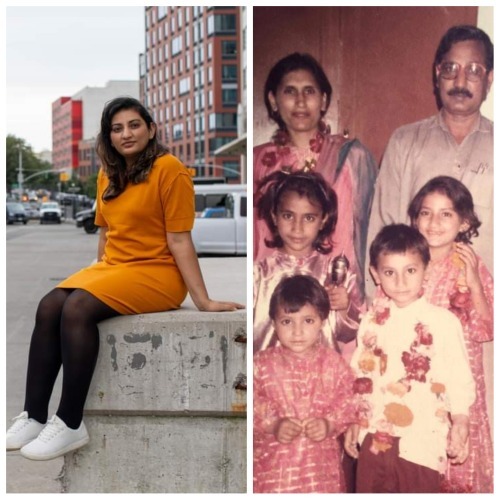
(1/11) “There is a moment I’ll never forget. My mother was teaching a class at our home, and my father hit her in front of the students. It was humiliating. She was an esteemed teacher in our town. After it happened, I asked her: ‘How could you possibly stay with him?’ She replied: ‘Boys will be boys. It’s a woman’s job to hold the home together.’ It’s the same story taught to every Pakistani girl. We are raised from a young age to believe that our purpose in life is to find and keep a husband. We are taught to cook, and clean, and never complain. It’s different for boys. They are allowed to grow, and work, and find their own way. But a daughter has just one path: to marry as quickly as possible. I always wanted more from life, even as a child. I wanted to create something. I wanted to be somebody. But there was nowhere to look for inspiration. The internet didn’t exist back then. And even on our television shows, women who wanted more than a family were depicted as villains. Maybe if a girl had perfect grades, then she could become a doctor or lawyer. But that wasn’t me. My grades were only average. I remember when I was sixteen years old, I secretly recorded my voice and mailed the tape to a local radio station. I thought maybe I could host my own program. But my mother found the package and removed it from the post. Then a few months later I had my first meeting with a matchmaker. My mother coached me to keep my head down. She warned me not to be clever, and to answer every question with a single sentence. But none of the questions were about my personality. All of them were about my cooking, and cleaning, and sewing. At one point I got aggressive. I told the matchmaker that I had no interest in marriage. But she only laughed at this. ‘I hear that from every girl,’ she answered. ‘But they always fall in love with their husbands. Because marriage is a beautiful thing.’ For the next several months I rejected every suitor who came to our home. I kept hoping that my parents would change their mind. They were liberal people. Both of them were educators. But during my 12th grade year they took a pilgrimage to Mecca. And when they returned, things got even worse.”
January 25, 2021
“My mother was looking for a church, so she opened to a random...
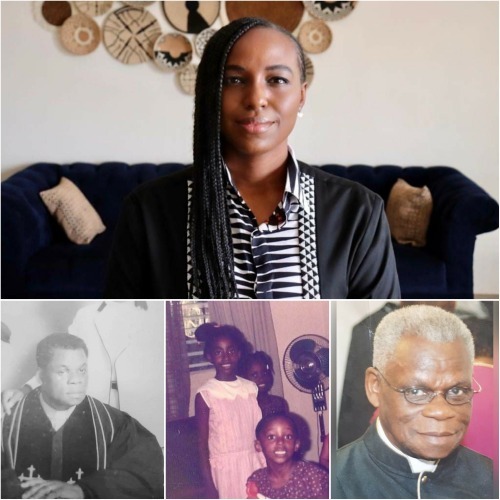
“My mother was looking for a church, so she opened to a random page in the phonebook and chose Pentecostal Tabernacle. It was a very West Indian church. Even though there were a lot of immigrants, we were one of the few African families. The civil war had stranded my father in Liberia, so my mom was raising three girls on her own. We didn’t have any family members around. And it wasn’t the nicest neighborhood, so the church became our community. The pastor was such a warm man. Pastor Herman had worked as a missionary in Liberia, so he understood our culture. He’d laugh, and sing, and clap when he preached. And he loved young people. In many churches the children are expected to fall in line. But Pastor Herman would always speak to us. And never with condescension. As a little girl I’d always been told that I talked too much. Or raised my hand too much. Or had too many ideas. Most adults would make me feel small. But not Pastor Herman. He prayed for me when I ran for student council. And he comforted me when I lost. My ideas would be given undivided attention, no matter how impossible they seemed. Pastor Herman would tell me: ‘Chara, you’re a leader. I see leadership in you.’ Can you imagine the power of hearing that? At the age of ten? He planted that seed. And there wasn’t any motive. He never pushed me into the ministry. He said: ‘Whatever God has put on your heart, pursue it.’ He told me that I could be Secretary General of the UN. We stayed in touch when I went off to college. And after graduation he encouraged me to accept a fellowship position with the Liberian government. Other people were telling me to settle down in the US, but Pastor Herman said: ‘Chara, go. You’ve been called to help back home.’ I ended up serving as one of the youngest deputy ministers. And right now I’m teaching governance and leadership to young African scholars. But there have been many times in my career when I’ve struggled to be my authentic self. I’ve heard voices from my past, saying: ‘You’re too intense. Too loud. Too much.’ But in those moments I’ve always heard another voice. The voice of Pastor Herman, saying: ‘Chara, you’re a leader. I see leadership in you.’”
January 24, 2021
“Halfway home I asked to stop for a drink. Then afterward I...
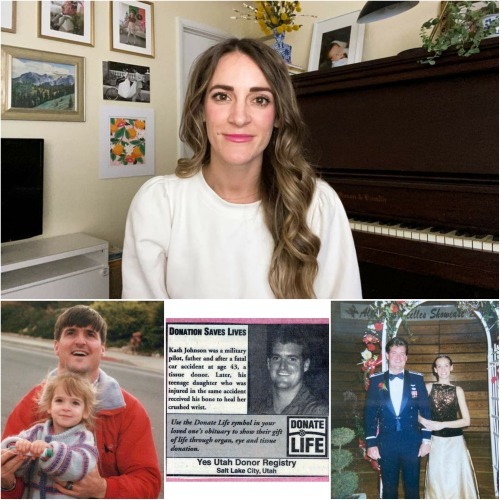
“Halfway home I asked to stop for a drink. Then afterward I hopped in the backseat to read a book to my brother. And that’s what saved me. Because the wreck happened a few miles down the road. The entire front of our car was crushed. My first thought was my hands. I had a piano competition coming up, so I looked down at my hands. One of them started to crumble before my eyes. I was taken in an ambulance. My brother was taken in a helicopter. But Dad never regained consciousness. He lived such a big life. His name was Kash. He was an Olympic-caliber skier. He flew jets in the Air Force. But oh man, he was such a good dad. Whenever I was asked to name my best friend, I’d say my dad. That’s how close we were. He died too quickly to salvage his organs. But everything else was donated: his eyes, his tissues, his ligaments. We have a list of fifty people whose lives he changed. The only thing my Mom reserved was his bone. She doesn’t remember why, but she asked them to set aside some bone. I felt so angry after his death. But in that selfish, teenage way. My life had been so perfect. Now my dad was gone. And I couldn’t even play piano. Piano had been such a huge part of my identity. It was also my stress relief. But all the bones in my left hand were pulverized, and whenever I tried to play with my right, I’d just end up crying. I went through surgery after surgery. Hardware was put in, hardware was taken out, but nothing worked. Finally the doctors told me: ‘Your hand is dying, and the only thing left to try is a bone transplant.’ Only then did my mother remember my father’s bones. When we grafted his bone onto my wrist, the blood started to flow. My hand came back to life. And I could play again. Even now, seventeen years later, and with four kids of my own, piano is such a big part of my life. I play at church. And even though we have a shoebox of a house, we have a piano. In our living room we keep a photo album of my dad. We talk about him all the time: what he did, who he was. I hate that he never got to meet my kids, but they know him. They call him ‘Papa Kash.’ And we know Papa Kash is somewhere else right now. But he’s also very alive in this house.”
“Before she passed, she told my dad that she wanted him to fall...
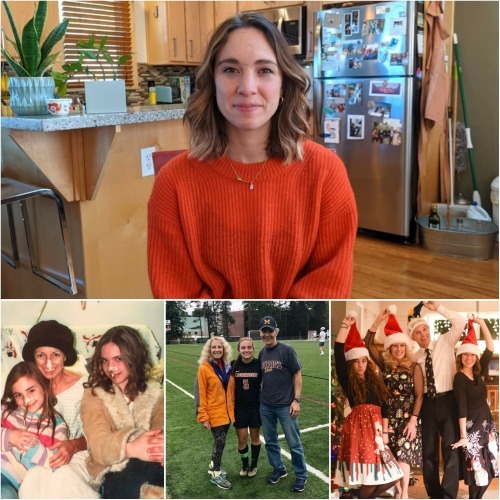
“Before she passed, she told my dad that she wanted him to fall in love again. ‘I’m going to find you the perfect woman,’ she said. ‘She’s going to love my daughters. And most importantly she’ll be a snow bunny.’ That was always the joke between them. Dad was a cross country skier so he loved the snow, but Mom was the opposite. Her dream was to move to Florida, so she covered our house in dolphins and palm trees. I was thirteen when she lost her battle to cancer, and I think I’ve blacked a lot of it out. But I remember Dad put up a good front. He was raising two girls on his own, but he never missed a recital or practice. He cooked all the same meals that Mom cooked. And kept all of her holiday traditions. He didn’t date again for more than a year, when he was introduced to Tracy by his friends in the ski community. Tracy was a serious skier. She’d won the Michigan Cup nine times. But most importantly she was also a widow. Her husband had passed away around the same time as my mom. When they had their first date, Tracy and my dad reserved a table for four, in honor of their spouses. At first I wasn’t thrilled to see him dating again. But even my fourteen-year-old brain could see that he was happier. He was smiling more, and singing again. And Tracy was so gracious. She understood grief so she did everything right. She always asked about our mom. She honored all of her birthdays and death dates. She never tried to erase her memory. When we moved in together, Tracy decorated the house with things that my mother loved. She hung up old family photos. Both my mother and Tracy were crazy about holidays, so we got two trees every Christmas: one for Tracy’s collection of ornaments, and one for my mother’s. Three years ago Tracy finally married my dad. Those two stinkers had been engaged for nine years, but they finally did it. And the next year Tracy officially adopted us. It was a beautiful ceremony. We did it right before Christmas so we could celebrate over the holidays. Tracy held it together the entire time. But at one point the judge said: ‘In the eyes of the law, it will be as if you gave birth to these children.’ And that’s when she started sobbing with joy.”
“They opened her up and found nothing but cancer. But even then...
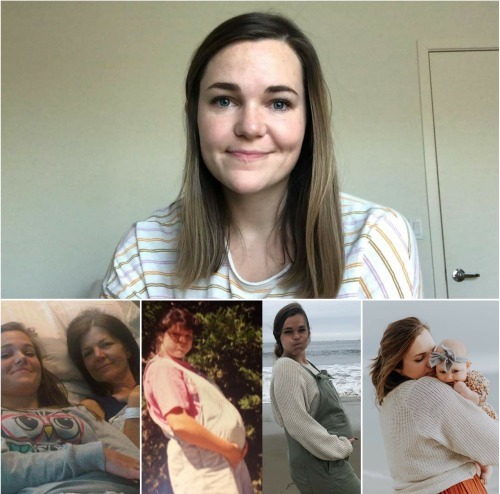
“They opened her up and found nothing but cancer. But even then she didn’t give up. She promised that she wasn’t done fighting. But it became a different kind of fight. It wasn’t easy. She was hooked up to a feeding tube. But she walked so beautifully toward death. She kept a photo album next to her bed. But instead of photos, she kept notecards with Bible verses. She said that her entire life she had thought she loved Jesus. But that now she really loved Jesus. I never once saw her depressed. There were sad moments, but even those were peaceful. And sometimes she’d laugh so hard it would physically hurt. Every day she told me I was beautiful. She’d said it before, but not like this. It was so intentional. And then there were the videos. She recorded videos for the big moments in our lives: graduation, our 21st birthday, our wedding, our first child. Over the years those videos became so precious to me. They’re not very long, just a few minutes each. She opens each one with a greeting. She’ll congratulate me on the stage of life I just hit. And say how sad she is to not be there. Then she’ll give me some advice. It’s very personalized. She’ll say: ‘I know you struggle with X, Y, and Z, so always remember this.’ Ever since I got married two years ago, I’ve known there was one video left. And it’s always given me comfort, knowing it was there. So it was bittersweet when my daughter was born on June 27th. My husband and I watched the final video together. It was harder than I expected. She was sicker than the other videos. She spoke really slowly. She talked about how I’d always loved babies, even as a child. And she said that she wished she could be there to cuddle my baby. She talked about my childhood, where I struggled, and where I excelled. And she ended by saying: ‘Love and encourage your babies. They will grow up quickly. So hug them. And pray for them.’ And that was it. She told me that she loved me and said goodbye. For years I’d been dreading that moment. But it felt strangely peaceful. Like I was ready. Ready to take up this role. It’s my turn to have a daughter now. To love her. And to be purposeful with her, just like my mom was purposeful with me.”
“I remember feeling the life come out of my body the moment I...
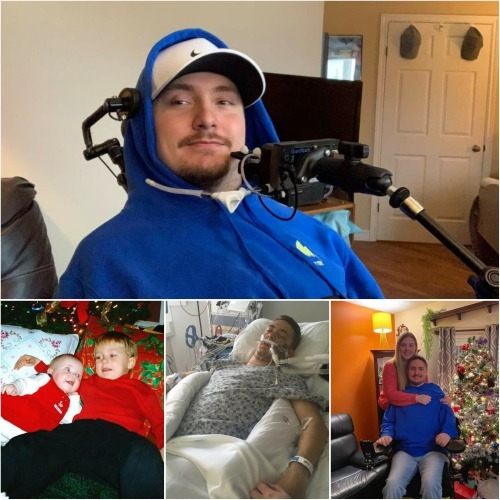
“I remember feeling the life come out of my body the moment I hit the bottom of the pool. I floated there, unable to move. We’d been drinking all night. So at first my friends thought I was joking. But finally they pulled me out and laid me on the ground. One of them grabbed my hand. And I couldn’t feel it. Not long afterwards I lost consciousness. When I woke at the hospital, the first person I saw was my sister Aleya. She’s four years younger than me, and I can still remember the day she was born. One of my first memories is holding her in my arms, feeling so proud, knowing that she’d always be my little sister. Growing up we never had much. So I guess we found comfort in spending time with each other. Her favorite thing to do was sleep on the couch in my room. She was always a bit more shy, so I tried to push her along. After our parents split we had to fend for ourselves a lot. And even as a young boy, I knew that a five-year-old girl needs a lot of affection. So I did my best. I pretended that Hannah Montana was cool, because I knew that everything I said was true to her. Both of us were robbed of normal childhoods. I know that she struggled in her early teens. One night she looked at me, and asked: ‘How come you’re not fucked up like me?’ And it really broke my heart. That wasn’t long before my injury. And after I got hurt, it’s like we switched places. Suddenly I was the one who felt ready to give up, but she wouldn’t let that happen. I think my paralysis made her realize something: ‘You have to cherish what you have.’ And she’s really pushed that mindset onto me. She’s always reminding me to focus on the things that I have. There’s so much to be grateful for. The Canadian government pays for my apartment and healthcare. My friends held a fundraiser so that I could get a handicapped van. I’ve even gone back to school. There’s so much assistive technology, I can do design work with my mouth. And most importantly I have a sister I can talk to every day. Who knows me. And gets me. And shares the same deep roots. Someone who pushes me and tells me that she’s proud of me. And who makes me want to give back in the same way she gives to me.”
January 20, 2021
“I remember feeling the life come out of my body the moment I...
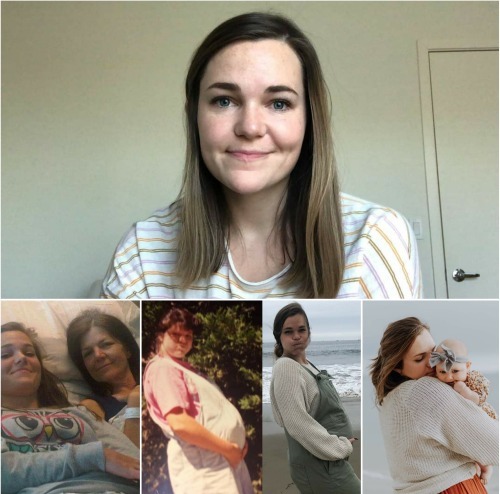
“I remember feeling the life come out of my body the moment I hit the bottom of the pool. I floated there, unable to move. We’d been drinking all night. So at first my friends thought I was joking. But finally they pulled me out and laid me on the ground. One of them grabbed my hand. And I couldn’t feel it. Not long afterwards I lost consciousness. When I woke at the hospital, the first person I saw was my sister Aleya. She’s four years younger than me, and I can still remember the day she was born. One of my first memories is holding her in my arms, feeling so proud, knowing that she’d always be my little sister. Growing up we never had much. So I guess we found comfort in spending time with each other. Her favorite thing to do was sleep on the couch in my room. She was always a bit more shy, so I tried to push her along. After our parents split we had to fend for ourselves a lot. And even as a young boy, I knew that a five-year-old girl needs a lot of affection. So I did my best. I pretended that Hannah Montana was cool, because I knew that everything I said was true to her. Both of us were robbed of normal childhoods. I know that she struggled in her early teens. One night she looked at me, and asked: ‘How come you’re not fucked up like me?’ And it really broke my heart. That wasn’t long before my injury. And after I got hurt, it’s like we switched places. Suddenly I was the one who felt ready to give up, but she wouldn’t let that happen. I think my paralysis made her realize something: ‘You have to cherish what you have.’ And she’s really pushed that mindset onto me. She’s always reminding me to focus on the things that I have. There’s so much to be grateful for. The Canadian government pays for my apartment and healthcare. My friends held a fundraiser so that I could get a handicapped van. I’ve even gone back to school. There’s so much assistive technology, I can do design work with my mouth. And most importantly I have a sister I can talk to every day. Who knows me. And gets me. And shares the same deep roots. Someone who pushes me and tells me that she’s proud of me. And who makes me want to give back in the same way she gives to me.”
Brandon Stanton's Blog
- Brandon Stanton's profile
- 768 followers



